
Heart Failure
Latest News
Latest Videos

CME Content
More News

The investigators of this study wanted to know if hospitals that cared for a high proportion of Black patients delivered care for heart failure (HF) that differed in quality from that provided by other hospitals.
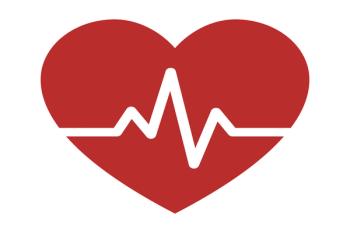
Using data from the PROVE-HF study, investigators conducted a subanalysis of outcomes among patients receiving sacubitril/valsartan who did and did not have ischemic heart disease.

At present, there are no approved therapies for pre–heart failure with preserved ejection fraction (pre-HFpEF); instead, cardiovascular risk factor management is often utilized in this patient population.

There are higher risks of several major adverse cardiovascular events (MACEs) following intracerebral hemorrhage (ICH), and they include recurrent ICH, ischemic stroke, and myocardial infarction.

Data from the PANORAMA-HF and PARADIGM-HF trials support the recommendation for approval from the Committee for Medicinal Products for Human Use (CHMP) of the European Medicines Agency.

This study of the public health landscape in New York City investigated the interplay between social determinants of health (SDOH), chronic health conditions, and inequities in social factors, with a focus on cardiovascular disease (CVD).

Baseline risk assessment that includes prior treatment history for cancer, prior cardiovascular events, and markers for potential heart damage are all important, emphasizes Tochi M. Okwuosa, DO, cardiologist and director of cardio-oncology at Rush University Medical Center in Chicago.
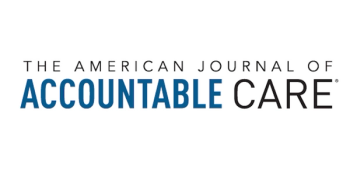
Optimizing utilization of sacubitril/valsartan for treatment of heart failure could improve provider performance in the Bundled Payments for Care Improvement initiative and the Medicare Shared Savings Program.

Speaking at the 72nd American College of Cardiology Scientific Session in New Orleans on Sunday, Clyde W. Yancy, MD, MSc, the vice dean for diversity and inclusion at the Feinberg School of Medicine at Northwestern University, challenged the audience to rethink what success looks like in health care.
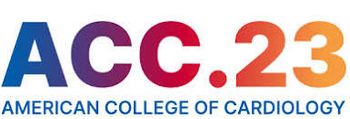
Results for the STELLAR trial, presented at the 72nd American College of Cardiology (ACC) Scientific Session Together With the World Congress of Cardiology, hit nearly every mark: patients taking sotatercept improved their performance on a 6-minute walk test by 40.8 meters, which was the primary end point, and achieved 8 of 9 secondary end points.

Potential disparities in care highlight the great need for tailored cardiovascular health (CVH) interventions among bisexual female individuals, according to a recent study.

Results from the CLEAR Outcomes trial were presented today at the 72nd American College of Cardiology (ACC) Scientific Session Together With the World Congress of Cardiology. Plans for a broader label are in the works.

Braden Manns, MD, MSc, a nephrologist and health economics researcher at the University of Calgary in Canada, will present the results of a randomized trial evaluating the impact of removing co-payments for drugs that treat chronic conditions on cardiovascular outcomes during the American College of Cardiology Scientific Sessions in New Orleans, Louisiana, on Sunday, March 5.

Outcomes from the loop diuretics were compared in this analysis, with study participants from the TRANSFORM-HF trial matched 1:1, all having been hospitalized for either do novo disease or worsening chronic disease.

Tochi M. Okwuosa, DO, Rush University Medical Center, discusses ways in which cancer treatments can adversely affect heart health outcomes for patients under the care of oncologists.

Patients with heart failure and high comorbidity burdens who received postdischarge noninvasive telemonitoring and nurse telephone coaching showed better survival outcomes than those who received standard care.

Implications of these findings include a more clear understanding of the burden imposed by heart failure (HF), which encompasses the cost of care and adverse health outcomes.

On this episode of Managed Care Cast, we speak with Tom Stanis, CEO and cofounder of Story Health, and Phillip Wood, Intermountain Ventures program director, on how their partnership came about, how it is going so far, and the future of their collaboration.

Tochi M. Okwuosa, DO, cardiologist and director of cardio-oncology at Rush University Medical, discusses the multidisciplinary process that underlies caring for patients with cancer who may develop heart damage.

Investigators found a higher overall health care burden among a large cohort of patients despite their recovery from sepsis, with potential long-term implications and higher risk of cardiovascular disease.
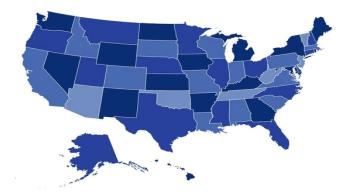
Using data from the Southern Community Cohort Study, investigators compared outcomes between Black and White participants for heart failure risk.
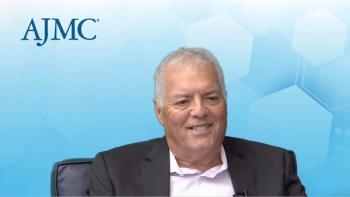
Pharmaceutical companies would have to spend a lot of money on pediatric anticoagulation studies for diseases that are rare among these patients, explained Michael A. Portman, MD, FAHA, of Seattle Children's Hospital.

This new investigation serves to update decades-old data on patient eligibility for and participation in cardiac rehabilitation programs.

During an interview at the 2022 American Heart Association Scientific Sessions in Chicago, Michael A. Portman, MD, FAHA, Seattle Children's Hospital addressed how cardiac disease presents in pediatric vs adult patients.

Patients included in this subanalysis of data from the REHAB-HF trial were 60 years and older and had been hospitalized for acute decompensated heart failure.












